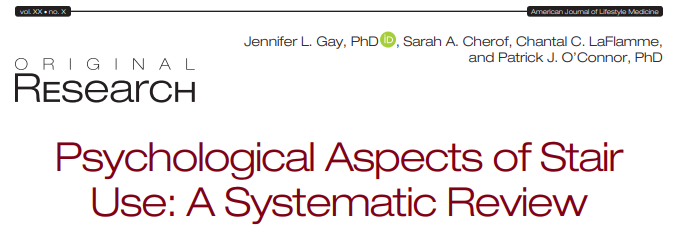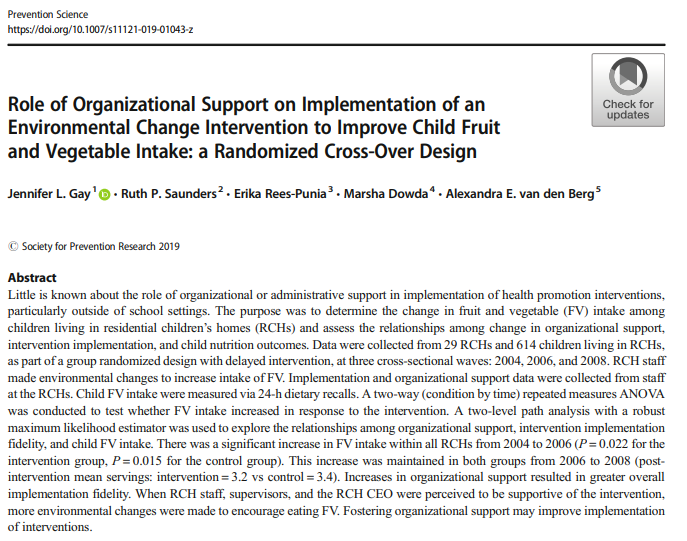Two new articles co-authored by PACE Lab members were published online in August. Chantal LaFlamme, an current senior at UGA, co-authored a systematic literature review on the associations between stair use and mental health. Former PACE Lab doctoral student, Dr. Erika Rees-Punia, assisted with the analyses assessing the role of intervention implementation on fruit and vegetable consumption among children living in residential children’s homes. This study is part of the Environmental Interventions in Residential Children’s Homes (ENRICH) project led by Drs. Ruth Saunders (University of South Carolina) and Alexandra van den Berg (UT Health). Great work!

Stair use, a common lifestyle activity, is a moderate-to-vigorous physical activity that, despite often being brief in duration, may contribute to psychological health. A systematic literature review was conducted using the Preferred Reporting Items for Systematic Reviews and Meta-Analyses (PRISMA) method to summarize psychological aspects related to stair use. Included studies examined at least one psychological outcome in relation to either objective measures of stair use such as time or stair height, or subjective measures of, or related to, stair use such as perceived difficulty using stairs. A total of 22 studies met the inclusion criteria, 12 used subjective stair use measures and 10 used objective stair use measures. The limited evidence from studies using self-reports supported that (i) perceived difficulty using stairs was positively associated with increased symptoms of anxiety and depression, and (ii) stair use was not associated with a reduced incidence of mental illnesses such as depression, suicide or dementia. Studies using objective measures of stair use supported that (iii) elevated symptoms of anxiety and depression are negatively associated with stair use performance. Given the widespread use of stairs there is surprisingly little data about the extent to which, and for whom, stair use influences psychological health.

